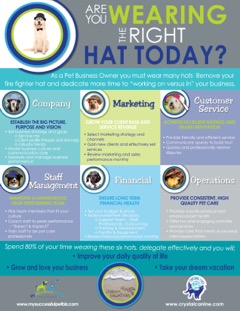
Recently pet care businesses have made the news with tragic stories. You probably saw them, felt sad or angry, and took pride in how your business cares for animals.
The problem is in the public’s eyes everyone in the pet care industry is tainted by these stories. In the last two weeks the following tragedies have been in the news:
- In Florida, two dogs died within two weeks from heatstroke at the same dog daycare
- In California, an owner was arrested for animal cruelty for having three dogs of a client illegally killed
- In Nebraska, a daycare is under investigation after a puppy was killed by an adult dog
This totals five animal deaths in three states and all of them could have been prevented. It is time that the real professionals in our industry stand up and start talking about negligence. None of these cases were accidents, yet the media’s focus is on a need for government regulation.
Heatstroke is preventable with staff education and operating policies that limit outdoor play time based on heat and humidity. Separating puppies and smaller dogs from large during play is one of the core safety standards when offering daycare.
There is no government regulation in pet care that requires staff education or operating policies for managing weather conditions or how to separate dogs during play. Government regulation would not prevent these deaths.
Keeping pets healthy and safe requires professional knowledge and a commitment to operational safety standards. This is why PACCC, the Professional Animal Care Certification Council was formed (www.paccert.org). Developed by pet care professionals from the industry the independent exams provide certification of the pet care provider’s knowledge.
Today we have 62 Certified Professional Animal Care Provider’s (CPACP) and 4 Certified Professional Animal Care Manager’s (CPACM). Support from the industry is required to grow these numbers.
Do you have the courage to lead in your market and become the first certified animal care professional?
The next exams are in October, but registration closes on September 15th. Practice exams are available for both provider and manager levels so you can “test” your knowledge prior to taking the actual exam. There is strength in numbers and now is the time to separate the true professional providers from the rest of the pack.
Join us in October and help PACCC reach a goal of exceeding 100 professionals by the end of 2017. Our animals are definitely “safer in a PACCC” and your help is needed to educate your community on the difference.








As I have before, I must again speak out against this certification scheme in pet care. The solution is not expensive tests but free or inexpensive information sharing within the industry. This sort of approach in other fields has served entrenched gate-keeping functions much more than educational functions, widening the divide between corporate-owned providers who can afford to coach employees and pay the test fees, then recoup their investment by non-compete clauses in hiring/retaining those employees. Development of best-practices and the support of all workers within an industry (or quasi profession) is in everyone’s interest and should be relatively easy to do at very low cost for every participant. The three cases cited do not necessarily reflect ignorance but rather, most probably, greed, or anomalous conditions (operating when short-staffed, equipment malfunction or other immediate problem.)
Laurie, I respect your view that certification is not needed in pet care services and obviously disagree. There is a lot of free information available from reputable sources to industry participants, but unfortunately pets still die unnecessarily in pet care businesses. In my opinion, the industry needs to take a stand that this is not acceptable. Our pets and their parents deserve an easy way to identify the professionals with knowledge and commitment to safety protocols. Those will be relied upon even when short-staffed and equipment malfunctions as their procedures include ongoing monitoring of all pets in their care. The PACCC board and volunteers are small business pet care owners and not corporate providers. Other solutions are welcomed and the industry itself must decide it’s future, but ongoing deaths damages the reputation of every operator in the current environment.
Susan, is anyone in the pet care field saying, or even thinking, that these incidents are acceptable? I don’t know the specifics of the three cases, but I would be willing to bet that they have been acknowledged by those involved as horrific failures, and not due to ignorance or being uninformed of hazards. I have seen how certification programs eventually lead to regulation, and in the current scheme, government regulatory bodies always work in favor of the largest entities. Agencies hire inexperienced agents and arm them with checklists on clipboards – but cannot give them the experience and wisdom to know how to interpret what they are measuring. Credentials are used for gate-keeping and competitive purposes and not much for improving practices and standards. I do not think certification serves pet owners any better than other forms of due diligence. Experience, track record, reputation – these are elements we all use both competitively and to constantly upgrade the services we offer and provide.